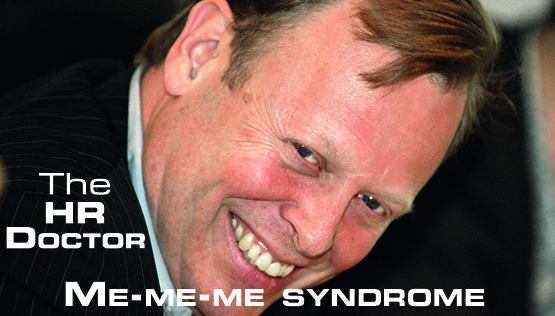 27.08.2020
27.08.2020
The HR Doctor 8: Me-me-me syndrome
Af Nick Holley, Associate Director of Learning, Corporate Research Forum
|
Nick Holley er Keynote på Træfpunkt HR 2020 online, hvor han deler ud af sine diagnoser over de 10 ”sygdomme”, som han har set HR lide af i de 30 år, han har fungeret som praktiker, researcher, underviser og konsulent. Kan du genkende dem? Som optakt til Keynoten sætter vi fokus på de 10 sygdomme i ugerne op til Træfpunkt HR. |
I was at a party recently and met someone I’d never met before. He spent 30 minutes talking about himself. Finally, he stopped, took a breath, and asked me what I thought about him. This is a fundamental issue about HR. HR isn’t about me or about HR it’s about the business. As someone said to me ‘if you went into HR for personal recognition, you’re in the wrong profession!’. Me-me-me syndrome, the belief that HR is about HR, is a fundamental barrier to effective HR and I’m afraid it’s propagated perhaps unintentionally by some key players in the HR space who take an HR centric view of the world.
Symptoms
- Me-me-me syndrome is closely related to narcissism. HR people who suffer from this think it’s all about them.
- Sometimes this is driven by arrogance but more often it’s driven by a lack confidence - so HR always has to prove how good it is. It spends huge amounts of time measuring HR activity to prove how good it is when the business doesn’t really care what HR does, but cares about the difference it’s making.
- As a result HR never looks at things from someone else’s perspective. It never listens or seeks to understand. Not only that but HR never seeks or acts on feedback as it sees it as criticism rather than a gift that will help it improve.
- HR people who suffer from Me-me-me syndrome make poor coaches as their inner voice is focused on being a good coach rather than being focused on the person they are coaching. They ask themselves what question will make them look good rather than what question will help the other person.
- Finally it can drive a fatal impatience: “Why do I have to waste my time on them and their needs when it just gets in the way of what I need to do?”
Impact
- Me-me-me syndrome results in lower trust. If you read the book ‘The Trusted Advisor’ it looks at a formula that helps explain what drives trust. The biggest impact on this ‘trust quotient’ is how self-centred you are. The more self-centred the lower the trust; after all ‘if you are only interested in you why would I trust you to work in my best interests?’.
- A critical role for many HR people is to be the confidante to their line partner, the person with whom they can share their deepest concerns, knowing that they will get a sympathetic but professional response.
- In an earlier article I talked about integrity and it is critical in this confidante role that we don’t use confidential conversations for our own or HR’s ends.
- Me-me-me syndrome destroys the trust on which the confidante relationship is built with the result the manager has no one to turn to in the business. This is great for the executive coaching industry but not so good for the bottom line.
Example
To be honest I suffered from Me-me-me syndrome when I was younger. I lacked self-confidence and spent too much time trying to be liked rather than respected, with the result I found it difficult making the tough calls. As a young OD professional involved in a major reorganisation, I knew that a particular line manager was a major impediment to the change. When his director asked me if he should move him out, I advised him to give him time to change. In my heart I knew he wouldn’t, but I was worried he would find out and wouldn’t like me or even worse shout at me! The reorganisation turned into a disaster as this manager effectively blocked the whole change for six months. I learnt to take myself out of the equation and base my advice on what is good for my customer.
Cures
- The cure is simple: You need to constantly challenge yourself on whether what you are doing is being driven from the needs of the business or your own needs.
- It means remembering that there’s no limit to what you can achieve if you don’t have to take the credit. It means remembering that the best idea is the idea the person you are trying to influence just had.
- It just means stopping yourself once in a while and shouting at the mirror: “IT’S NOT ABOUT ME!”.
Læs også
- The HR Doctor 1: Disconnection disorder
- The HR Doctor 2: Delivery deficiency
- The HR Doctor 3: Initiativitis
- The HR Doctor 4: Compartmentalisation
- The HR Doctor 5: Dominance Pathology
- The HR Doctor 6: Easy Way Outosis
- The HR Doctor 7: Lack of depth malady
- The HR Doctor 9: Action paralysis
- The HR Doctor 10: Hair shirtysm